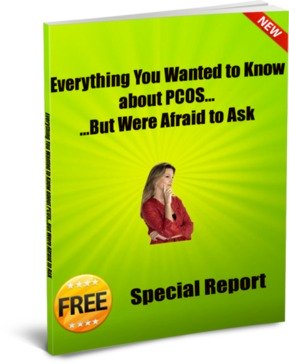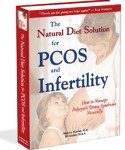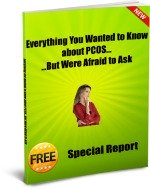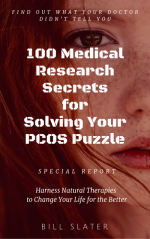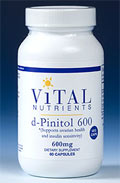PCOS Review Newsletter #78
High Intake of Red Meat Is Unhealthy
Eating a lot of red meat from animals that are commercially-raised and feedlot "finished" from agribusiness producers is not a great idea.
You may have heard the news lately about a single new study which concludes that eating the highest amounts of red meat and processed meats is associated with modest increases in deaths from cancer, heart disease or any other cause.
This study has many flaws, the most important one being that it does not separate "red meat" from "processed meats". The two have a lot in common. Both are animal protein pretty much saturated with chemicals that range from environmental pollution to hormone and drug residues.
The processed meats also have preservatives and artificial colors, as well as sweeteners and added salt.
Neither of these is safe to eat. If these animal protein products are the only type of meat available to you, you should indeed eliminate all processed meats and eat "red meat" not more often than once a week, as the study authors advise.
If you're a reader of our PCOS Diet book, maybe you're wondering if we made a mistake by including red meat in our diet. A couple of people have told us they think they are eating too much meat on our recommended diet for PCOS.
What's going on? After all, we suggest that you consume animal proteins such as meat and not eat refined carbohydrates such as bread. Some think we offer a "low carb" diet, high protein diet.
This is not quite correct. We do request that you change your carbs, mainly by increasing the amount of vegetables and decreasing grains.
It's preferable that you have at least five servings of vegetables every single day. By consuming five servings of whole vegetables (and some fruit), you will be getting all the vitamin, mineral and fiber nutrition you need to maximize your health.
We recommend that you eat clean, lean animal protein in amounts that are appropriate to help you recover from the effects of a poor diet and PCOS. Clean, lean animal protein is required for your long term well being; there is no substitute.
We want you to be picky about meats. Unfortunately this study gives us no new information about the health effects of eating optimal amounts of lean, chemical-free meats from grass fed and organically raised animals, meaning beef and lamb as well as bison, poultry, eggs and especially fish.
There are no processed meats in our PCOS diet at all. We prefer that you look for organic meats or range-fed meats that are lower in saturated fat and chemical residues. Or even wild game. Yes, it's more expensive. But these meats are simply superior and healthier compared to the average meat in your market.
Until we see some well designed studies on populations of people who eat high quality meats, we have to be careful not to paint those foods with the same brush.
It matters that you not eat foods that are full of toxic preservatives and colorings or hormone and antibiotic residues, whenever you have a choice. And that goes for plant foods as well!
The common sense bottom line is this: too much saturated fat is bad for you. It's where the toxins in the animal are stored.
So, remove all visible fat before cooking. If you cannot buy organically-raised food, visit www.ewg.org. The Environmental Working Group publishes lists of the most toxic and the least toxic food items that end up in your grocery store, including ocean fish.
Source:
Sinha R et al, Meat intake and mortality: a prospective study of over half a million people, Arch Intern Med. 2009 Mar 23;169(6):562-71
PCOS Health Review
This free newsletter gives you original and immediately usable information to help you deal with PCOS.
Get the latest research, tips for improving your health, answers to questions, success stories, and more!
Your e-mail address is totally secure. We will never misuse your information.
Enter Your Email Above to Subscribe Today
and Get Your Questions Answered in this Free Special Report!
